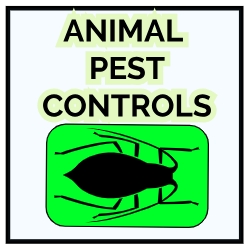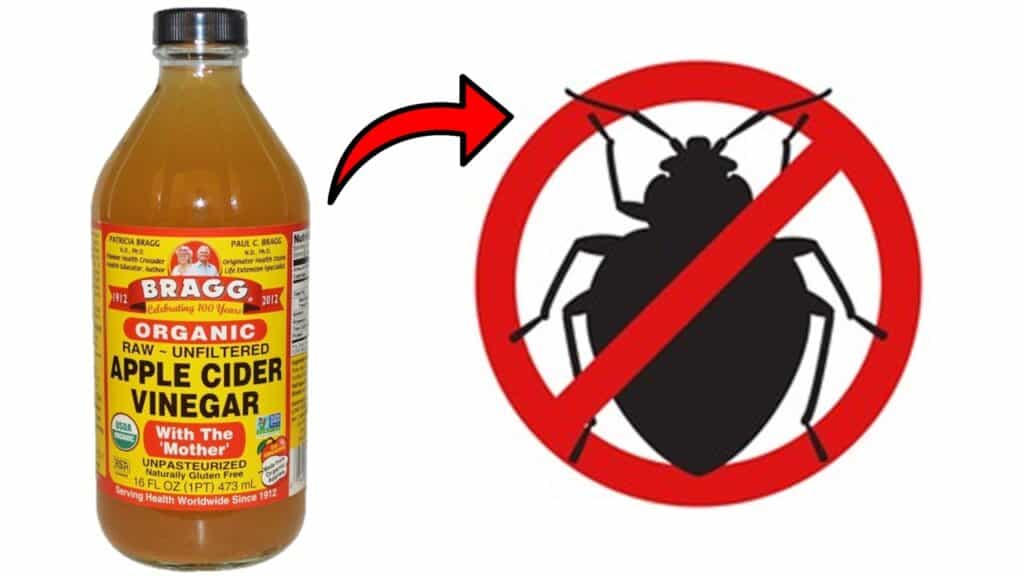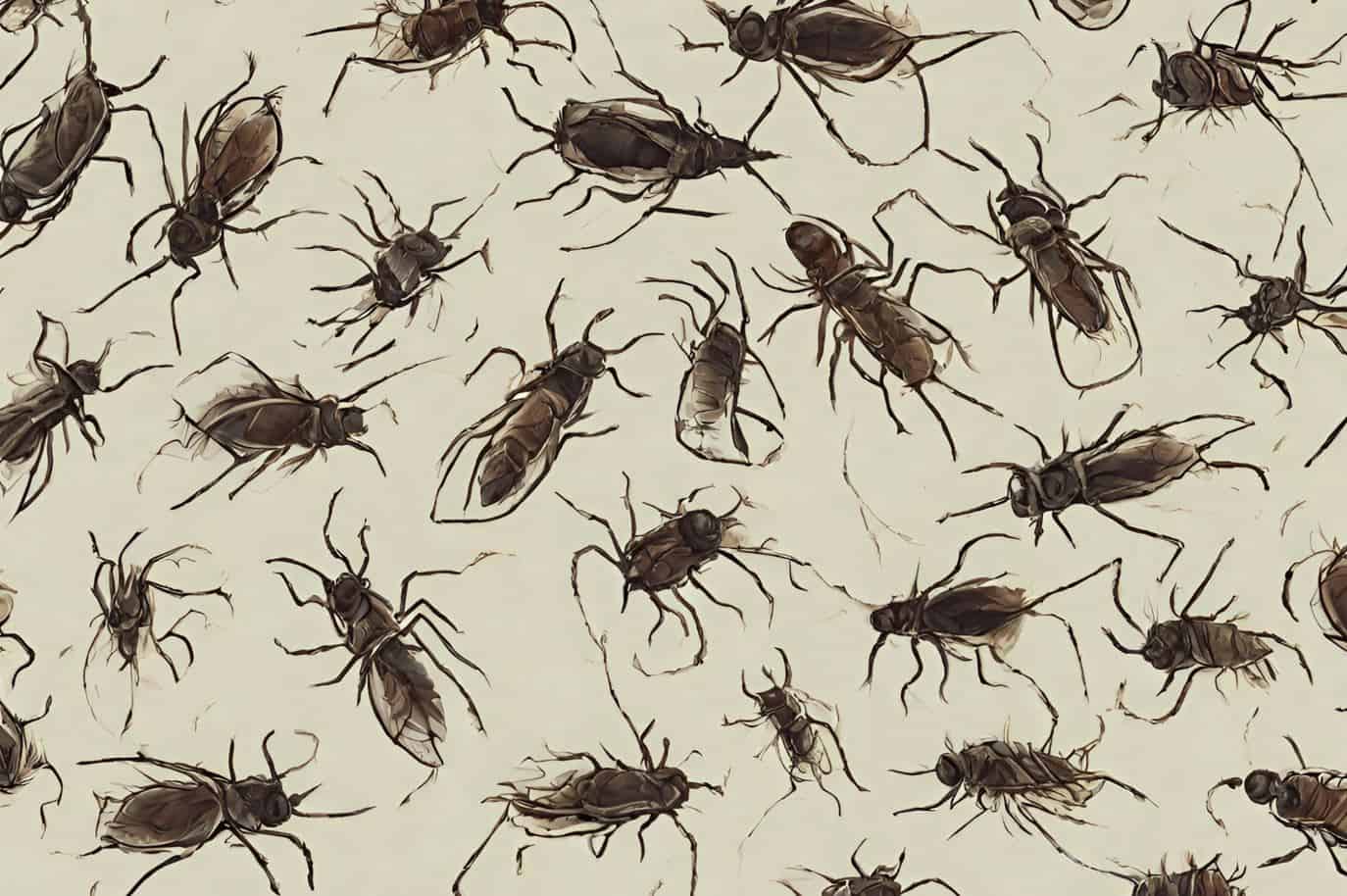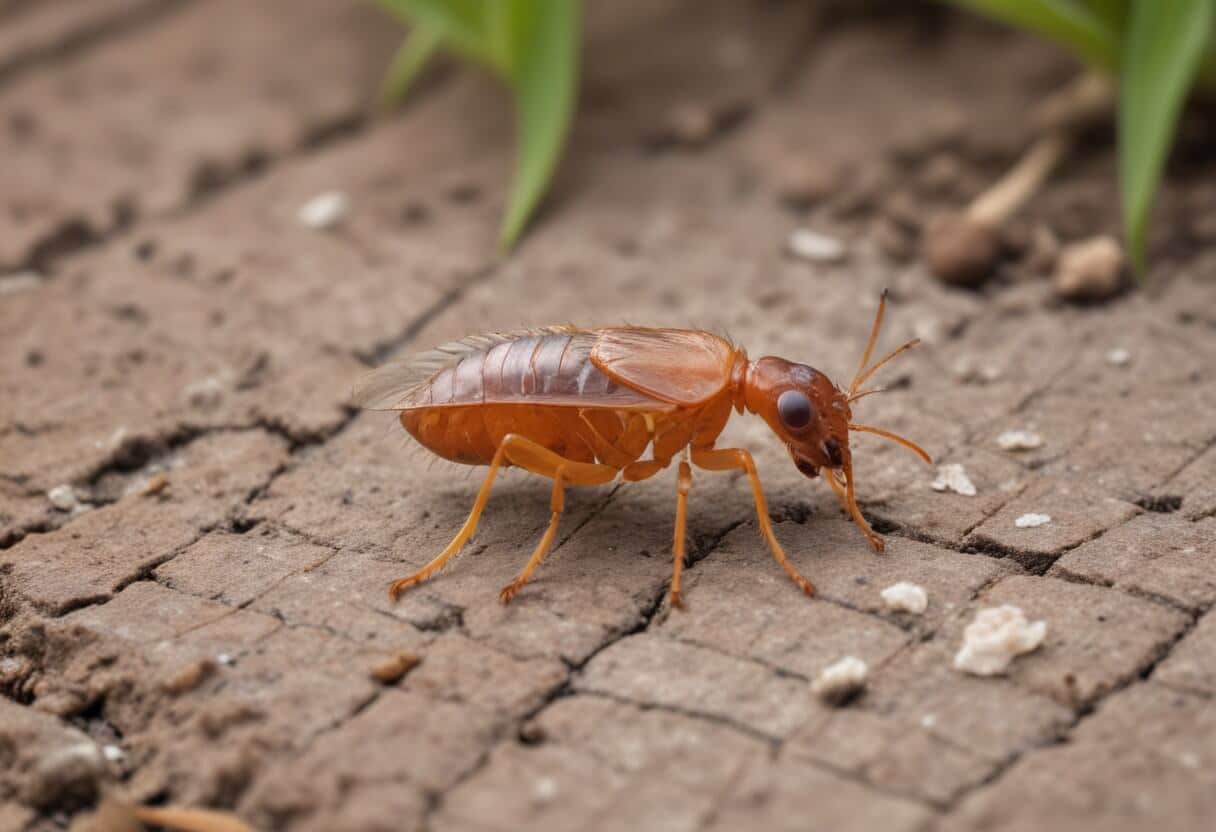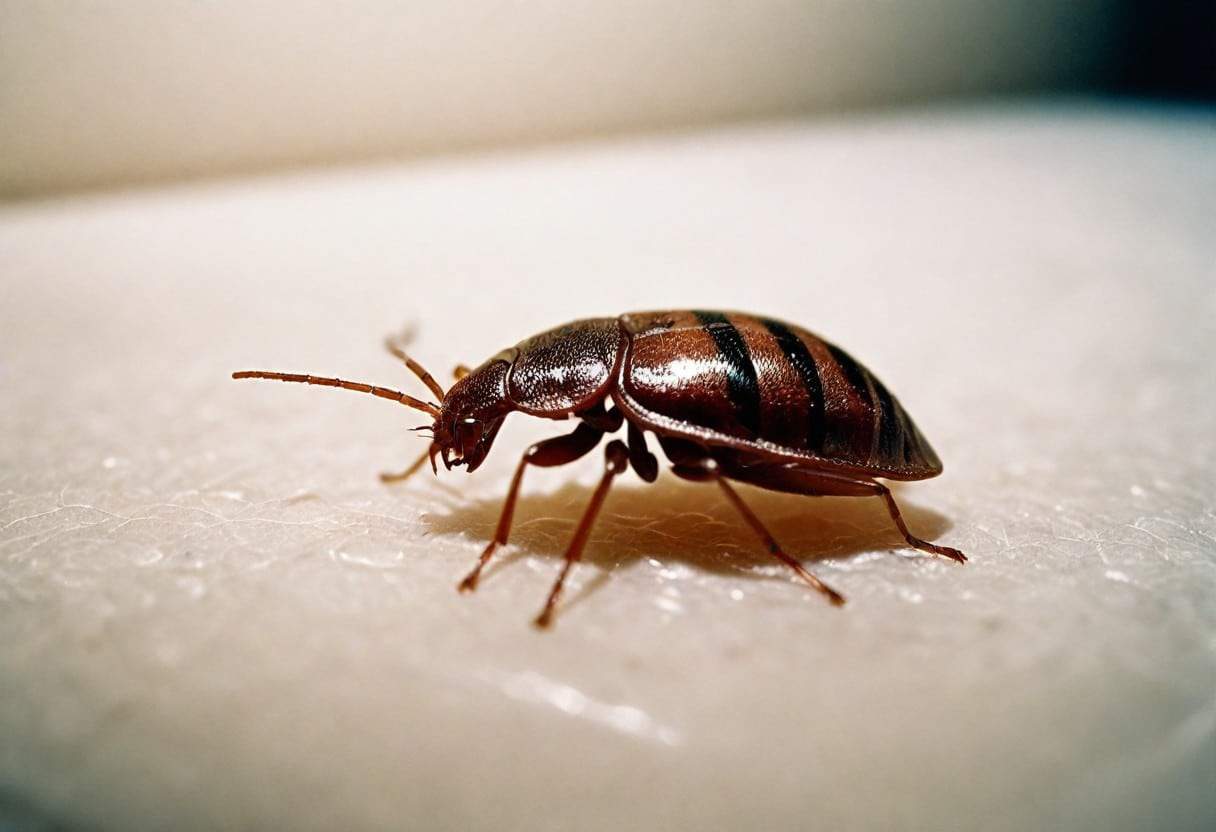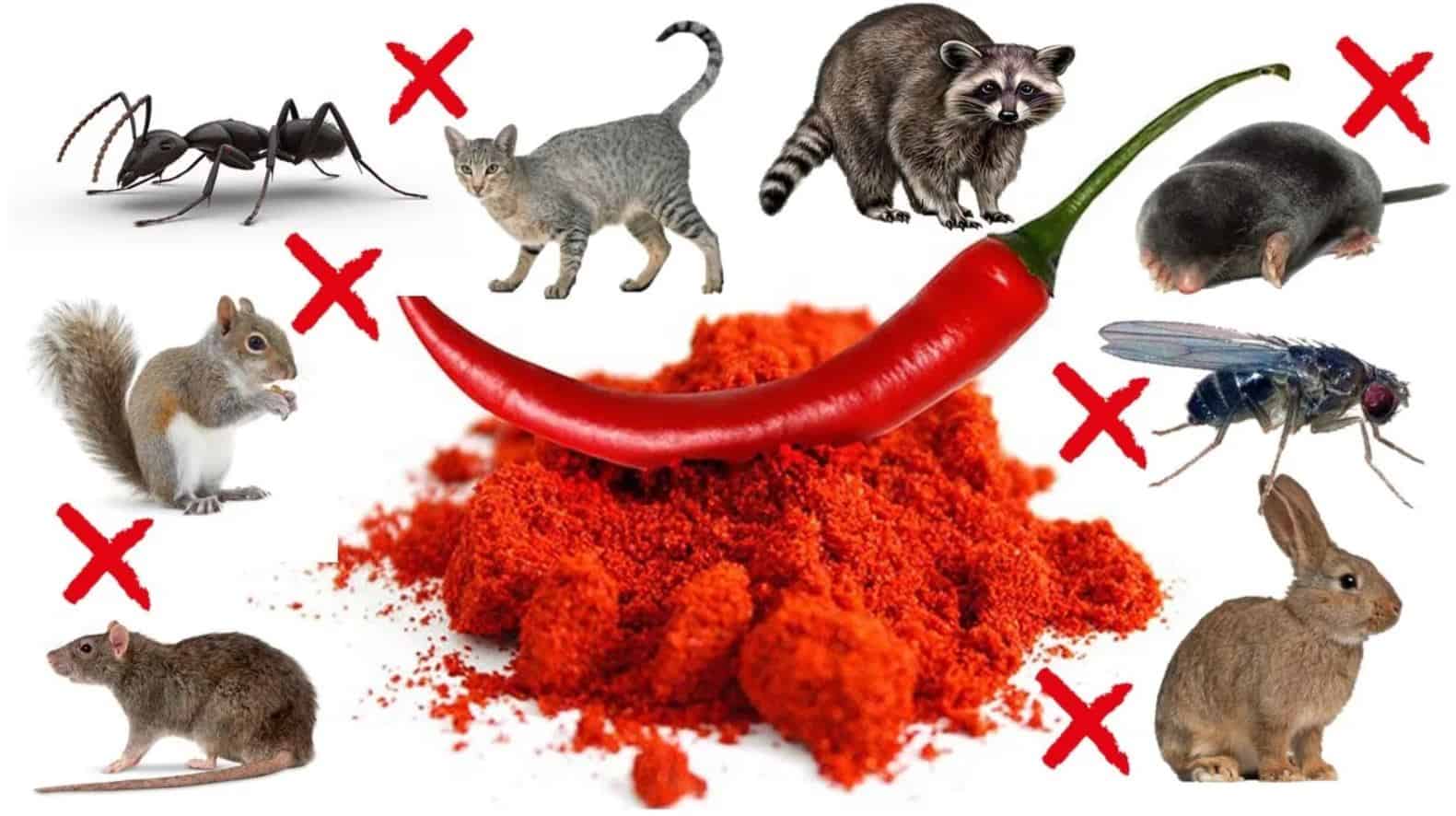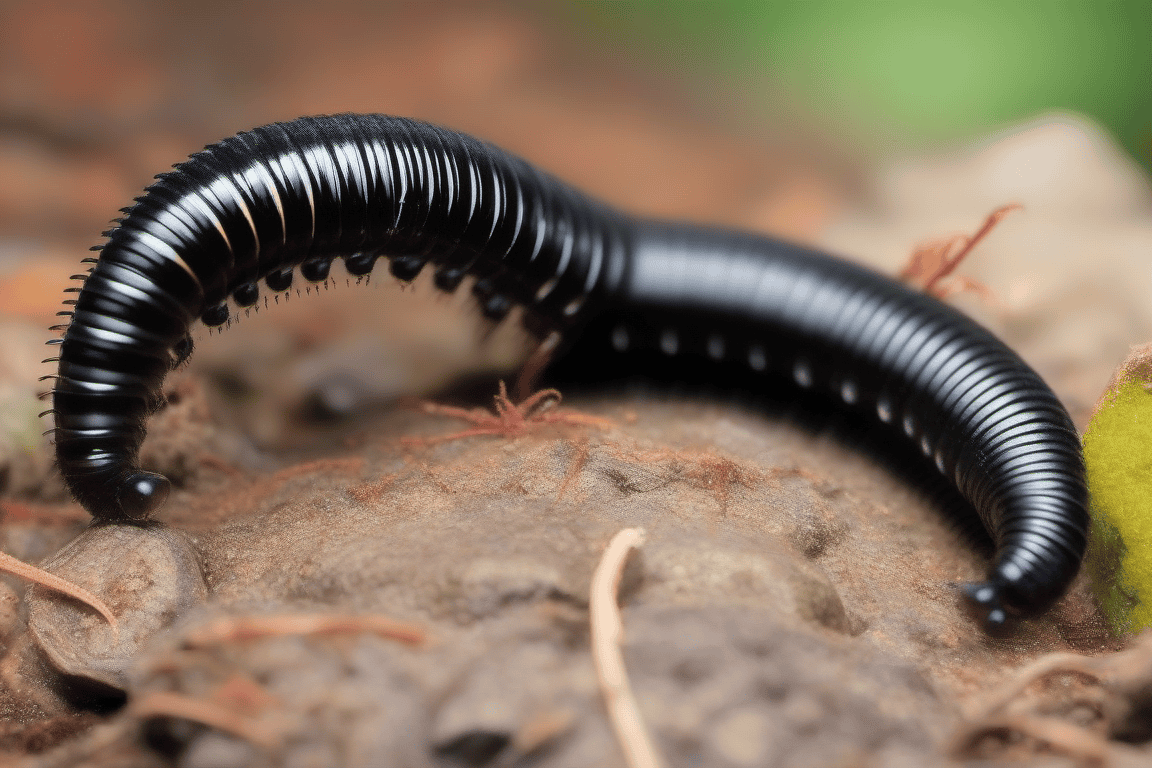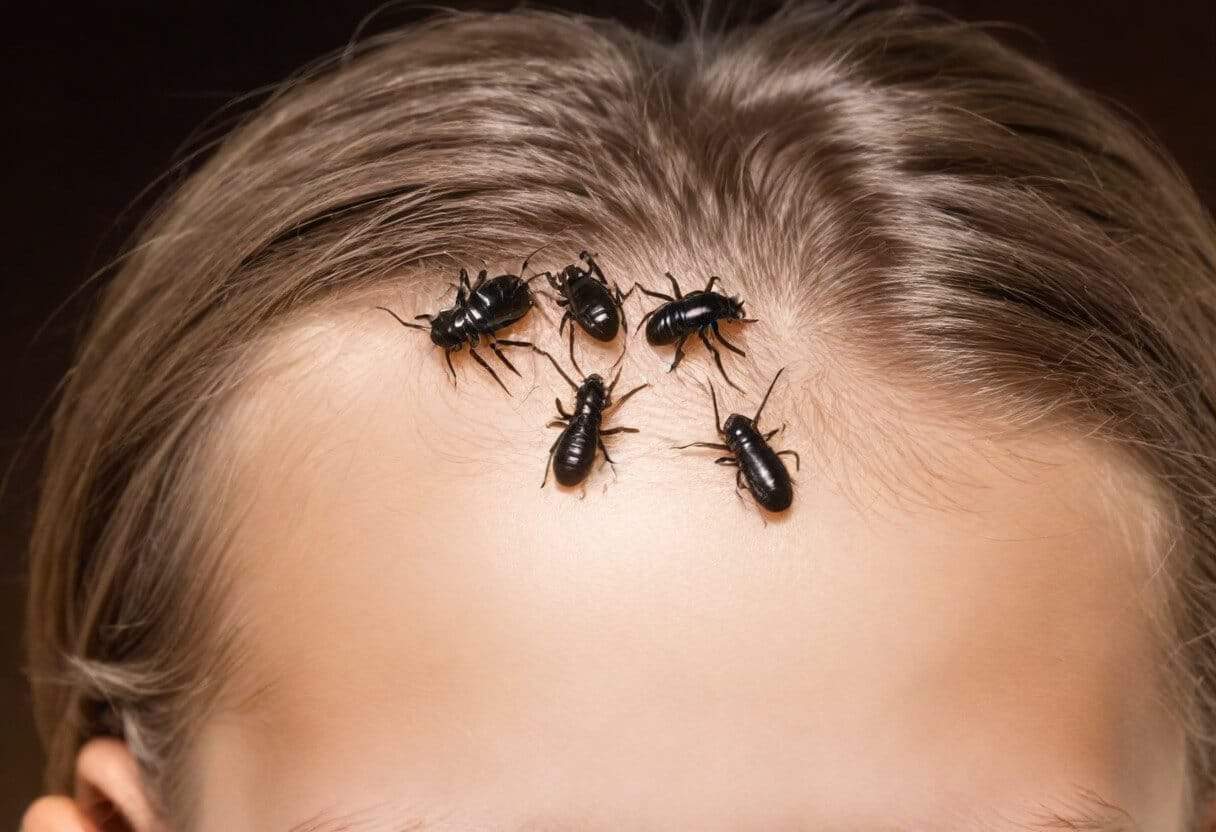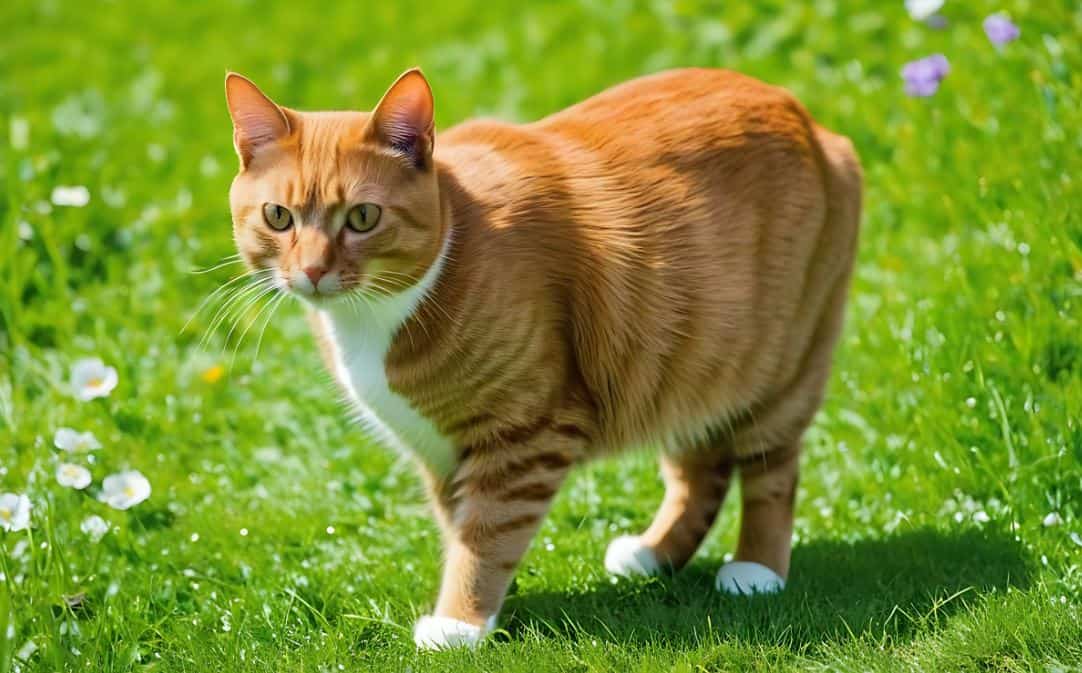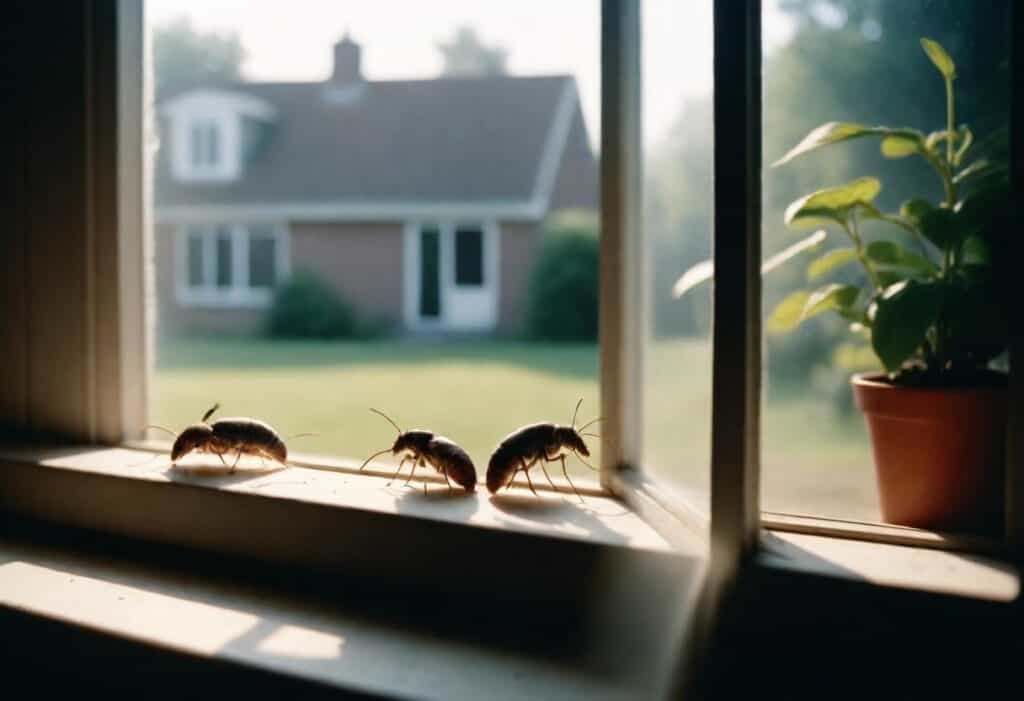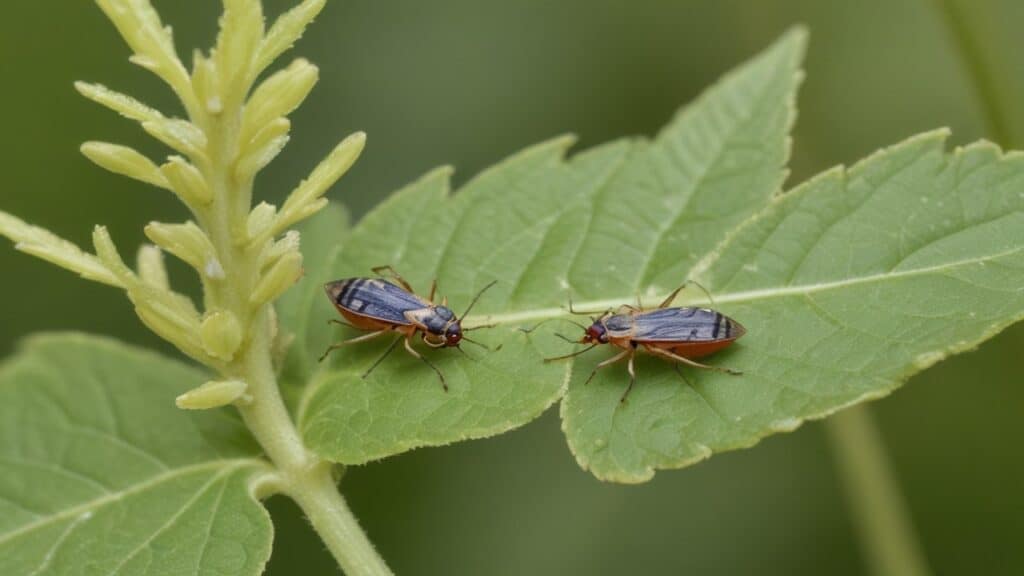Is your home being overrun by pests?
Do you want to send them packing without using toxic chemicals?
No one likes to share their home with pests, but sometimes they can be hard to eliminate – If you’re looking for a natural and effective way to eliminate household pests, look no further than apple cider vinegar.
This article will show you how to use apple cider vinegar to exterminate common household pests like ants, cockroaches, fruit flies, and mice.
So, don’t wait any longer. Say goodbye to these pesky, unwanted houseguests!
Table of Contents
What is Apple Cider Vinegar?
Apple cider vinegar is made from crushed apples fermented with yeast and bacteria. Manufacturers convert apple sugar into alcohol, processed into acetic acid.
This process takes about two months. Vinegar typically has a pale to medium amber color and a tart, acidic flavor. It is a common ingredient in salad dressings, marinades, vinaigrettes, food preservatives, and chutneys.
Apple cider vinegar is a natural acid that can help to kill pests. When diluted with water, you can use it as a spray to deter pests such as ants, cockroaches, and spiders.
This method is safe around children and pets and won’t damage your surfaces like some chemical sprays. Additionally, it’s much cheaper than buying commercial pest control products!
What are the Ways to Use Apple Cider Vinegar in Eliminating Pests?
1. Ants
The use of apple cider vinegar as a household pest control dates back centuries. It is a natural, non-toxic way to eliminate ants and other pests.
There are many ways to use apple cider vinegar to kill ants or send them packing. One way is to make a trap by mixing equal parts water and apple cider vinegar in a bowl.
Place the bowl near where you have seen ants, and they will be attracted to the sweet scent of the apple cider vinegar. The ants will crawl into the bowl and drown.
You can also spray ant trails with water and apple cider vinegar mixture. It will deter the ants from coming into your home. Apple cider vinegar can serve as a preventative measure.
Mix equal parts water and apple cider vinegar in a spray bottle and mist any entry points into your home, including the doorways and windowsills.
2. Cockroaches
Apple cider vinegar can eliminate cockroaches because of its acetic acid.
This acidic substance dehydrates and kills cockroaches and other pests on contact – Mix equal parts apple cider vinegar and water in a spray bottle and spray it directly on the roaches.
Ensure to mist the solution around your home, paying attention to cracks and crevices where these pests like to hide. The acidic properties of the vinegar will kill the roaches on contact.
You can also use apple cider vinegar to make a roach bait by mixing it with some sugar or honey. The sweetness will attract the roaches, and the vinegar will kill them.
3. Spiders
While most people are terrified of spiders, they are beneficial around the house. Not only do they eat other pests, but their webs also help trap dust and other allergens.
However, if you’re looking for a natural way to exterminate spiders, apple cider vinegar is an effective solution. The acidity of the vinegar is what kills the spider.
All you need to do is mix equal parts apple cider vinegar and water in a spray bottle and mist the areas where you’ve seen spiders.
You can also soak a cotton ball in the mixture and place it in areas where spiders are likely to enter your home.
4. Fruit Flies
Fruit flies are common house flies attracted to ripened fruits and vegetables. They are small, black, and have red eyes.
Fruit flies lay their eggs near the surface of fermenting foods or other organic matter, such as over-ripe fruit, garbage, or drains.
The female fruit fly can lay 500 eggs in her lifetime. The larvae hatch and develop into adult fruit flies in about eight to ten days.
You can use apple cider vinegar to trap and kill fruit flies and their larvae. To make a trap, fill a jar or bowl with apple cider vinegar and add a drop of dish soap.
The dish soap breaks the surface tension of the vinegar, which causes the fruit flies to drown when they land on the liquid. They are attracted to the scent and drown in the liquid.
This method is effective but can take a few days to eliminate the fruit flies. You can also use apple cider vinegar to clean surfaces infested with fruit fly larvae. It will dehydrate and destroy the eggs.
5. Mice
Mice can be very pesky household pests. They rummage through cupboards and drawers, leaving behind droppings and contaminating food.
While some people resort to mouse traps or poison, there is a more natural way to get rid of these pesky critters. Apple cider vinegar is a natural mouse repellent.
The potent smell of vinegar will deter mice from entering your home in search of food.
To use this method, soak some cotton balls in apple cider vinegar and place them around your home in areas where you’ve seen mice activity.
You can also pour apple cider vinegar into a spray bottle and use it to clean areas where mice have been active. It will send them packing!
6. Mosquitoes
Mosquitoes are one of the peskiest household pests. They’re not only annoying but can also carry diseases like malaria and West Nile virus.
The good news is that you can get rid of them using apple cider vinegar. Fill a bowl with apple cider vinegar and set it out where mosquitoes are a problem.
The mosquitoes will be attracted to the vinegar and will drown in it. You’ll need to empty and refill the bowl every few days, but this is a safe, natural way to eliminate mosquitoes.
Another way to exterminate these blood-sucking pests is to mix equal parts apple cider vinegar and water and spray it around the perimeter of your home.
This mixture will create a barrier these pests will be unable to cross. Additionally, the smell can kill them when they come in contact.
7. Head Lice
If you have head lice, you’re not alone. Millions of people get head lice each year. Head lice are tiny insects that live on the scalp and feed on human blood.
They’re usually present in children between three and twelve years old. But adults can also get head lice. Although head lice are not known to spread disease, they can be a nuisance.
They can cause itching and irritation on the scalp. Apple cider vinegar is a common home remedy for head lice – Mix equal parts apple cider vinegar and water in a bowl.
Apply the mixture to your scalp and hair with a cotton ball or other applicators. Leave it on for at least 30 minutes, then rinse it out with warm water.
You may need to repeat this process several times to eliminate all the lice.
8. Snails and Slugs
Snails and slugs are animals. However, they’re not the kind of animals that most people want in their homes.
These slimy creatures can wreak havoc on your garden, eating plants and leaving behind a slime trail.
But there’s an easy way to eliminate them – apple cider vinegar! Apple cider vinegar is a natural snail and slug repellent.
All you have to do is mix it with water in a spray bottle and spritz it around your garden and other areas you’ve seen the pests.
The acetic acid in the vinegar will kill the snails and slugs on contact, while the potent smell will keep them away from your plants. You may need to reapply the solution every few days to keep these pests at bay.
9. Dogs and Cats
Stray dogs and cats can be a nuisance to households, especially when they start to reproduce.
Apple cider vinegar is a safe and effective way to get rid of these unwanted guests. ACV is a natural repellent for dogs and cats and will deter other animals from entering your home.
To use ACV as a pest control measure, add a cup of vinegar to a gallon of water and spray around the perimeter of your home.
The mixture will keep them at bay!
Conclusion
Apple cider vinegar is an effective and natural way to eliminate household pests.
It is safe to use around children and pets and is a fraction of the cost of chemical pest control products.
Give it a try the next time you deal with ants, roaches, or other pesky critters in your home.
